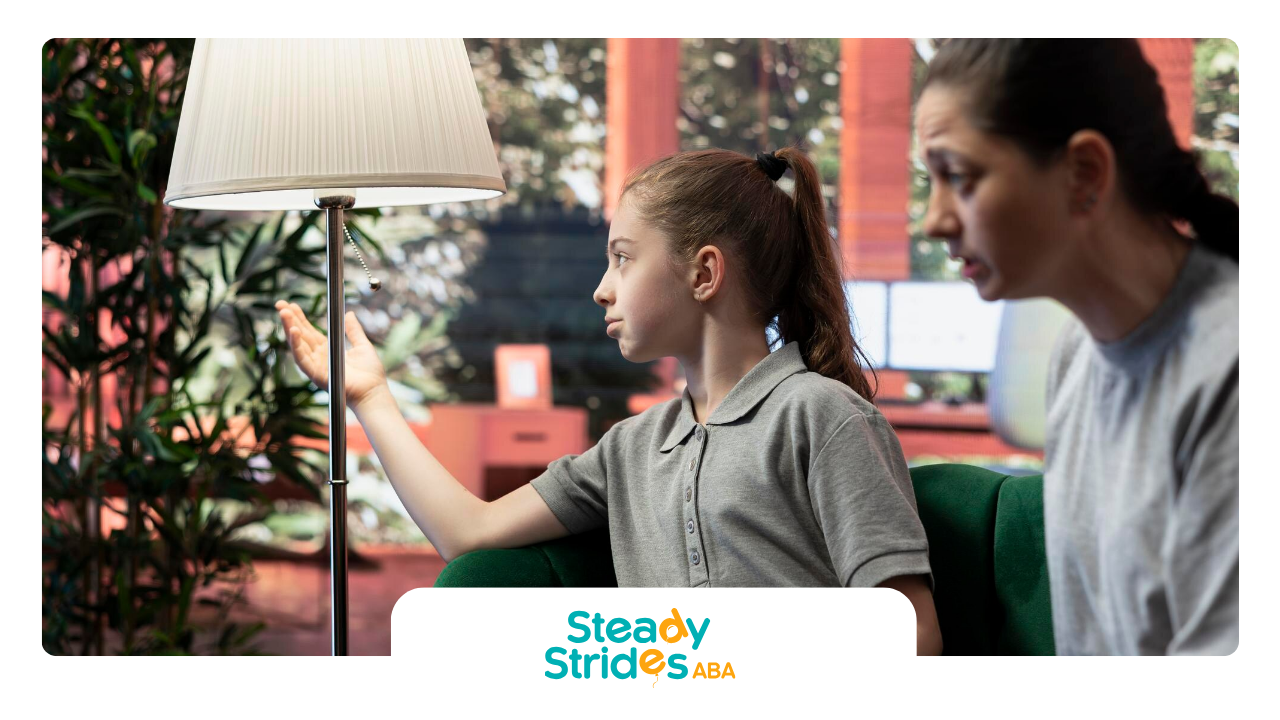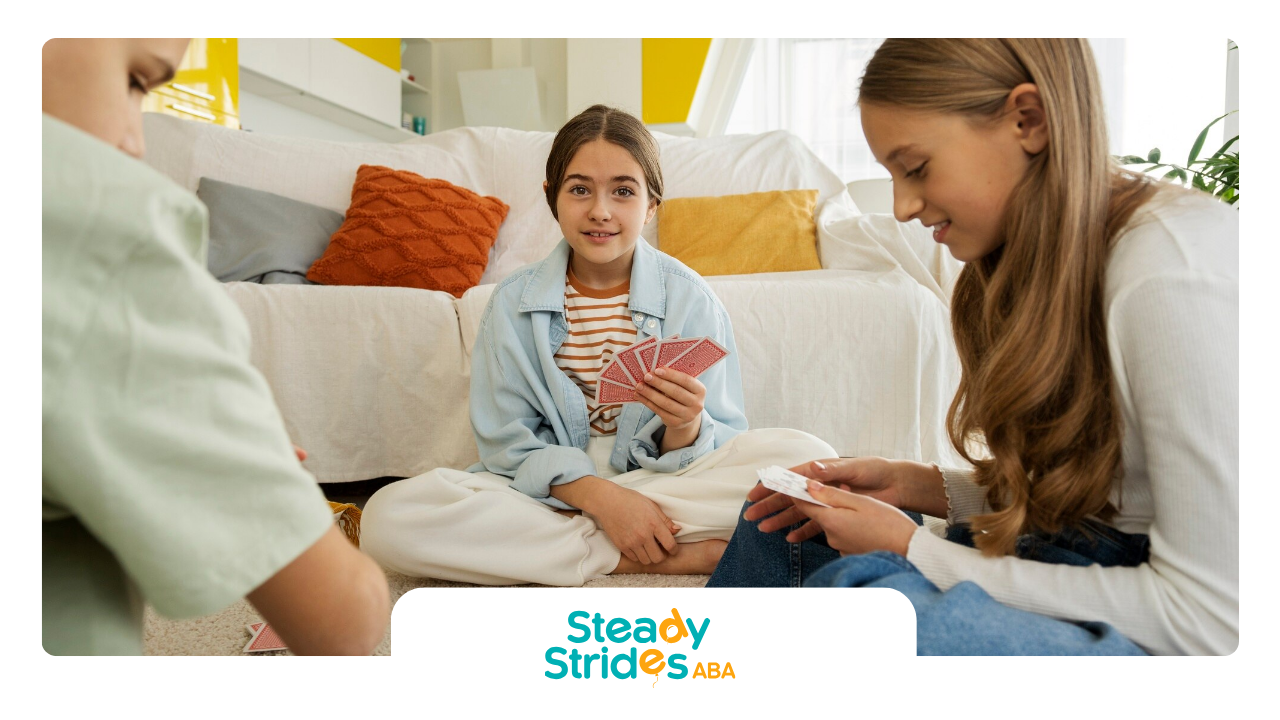Exploring Games for Autistic Adults
Playing board games changes the leisure game for autistic adults, offering an experience like no other. Families and professionals can discover unique benefits and a wide array of choices when picking the right ones.
Benefits of Board Games
Board games don't just pass time; they shower autistic adults with benefits like boosting social skills, encouraging brain power, and just being downright fun. These games tick all the boxes for those who like a bit of structure mixed with some good times. Key perks include:
| Benefit | Description |
|---|---|
| Social Interaction | Games are like magnets pulling people together, sparking chats and connections that polish social skills. |
| Cognitive Development | These brain ticklers work out the mind, pushing problem-solving, time to strategize, and decision-making skills. |
| Entertainment | They are a great way to have a blast with friends and family, kicking loneliness to the curb. |
| Therapeutic Benefits | Games put players in the comfort zone, busting stress and promoting chill vibes. |
Games like Ticket to Ride and Pandemic are fan favorites, sparking fun while building social skills and flexing those brain muscles.
Diverse Game Options
A smorgasbord of board games awaits autistic adults, from brain-bending strategy games to all-hands-on-deck cooperative games. Whether you like plotting your next move or teaming up with others, there’s something tailor-made for every taste.
| Type of Game | Examples |
|---|---|
| Strategic Board Games | Ticket to Ride, Chess, 7 Wonders Duel |
| Cooperative Board Games | Pandemic, Forbidden Island, Blokus |
Strategic biggies like Chess and 7 Wonders Duel keep the mind sharp, urging critical thinking and solutions-finding. Meanwhile, working together in games like Pandemic hones social skills, encouraging teamwork and communication in a friendly setting.
Stepping into the world of these games helps autistic adults dive into new interactions and tactics, all while enjoying the good vibes that gaming brings. For more specific picks, why not explore sensory-friendly games for autistic adults or therapeutic games for autistic adults?
Strategic Board Games
Strategic board games offer a fantastic way for autistic adults to sharpen their brains and connect with folks around them. These games don't just fill the time—they stretch those thinking muscles and make way for some nifty decision-making. Two standout options are the ever-popular Ticket to Ride and the timeless Chess.
Ticket to Ride
Meet Ticket to Ride—a game that gets you plotting and scheming across a map of railway routes. You collect cards to grab those routes, which means you gotta be sharp about planning and cutting deals. The game's got straightforward rules and cool visuals, so it's inviting without overloading the senses.
Playing this game is a hoot because it lets autistic adults practice chatting and plotting with others while chasing down their own aims. Here’s a breakdown of what it brings to the table:
| Perks | What’s in it for ya? |
|---|---|
| Social Butterfly Boost | You’ve gotta gab and plan with pals. |
| Decision-Master Training | Choices matter and they steer the game. |
| Attention to Detail | Keep an eye on those cards and routes. |
Ticket to Ride isn't just a fun fest—it’s like a workout for the brain and social skills rolled into one, whether you’re hanging out with buds or kicking back with the fam.
Chess
Then there’s Chess, the classic brain-boggler known for its strategic oomph. It's more than just moving pieces—it's about getting in the opponent’s head and plotting the path to that sweet checkmate.
Playing chess dishes out some neat benefits, like:
| Perks | What’s in it for ya? |
|---|---|
| Brainy Skills Boost | Strategy and focus are the name of the game. |
| Patience Pro | It’s a game of thinking ahead and pondering moves. |
| Strategy Chat | Discussing your game plan gets the chatter going. |
Chess comes in all flavors, from friendly matches on a lazy afternoon to head-to-head showdowns. It's a splendid way for autistic adults to grow their confidence and flex those analytical muscles.
Ticket to Ride and Chess show how strategic board games are a win-win for autistic adults. They mix fun with growth, encouraging social bonds and sharpening smarts, making them a top pick for autism-friendly games for adults.
Cooperative Board Games
Cooperative board games are all about teaming up with your buddies to reach a shared target. They're especially helpful for autistic adults, encouraging chinwags, teamwork, and social bits in a chill setting. Two games that really stand out are Pandemic and Forbidden Island.
Pandemic
In Pandemic, it's all about stopping global disease outbreaks by banding together. Each person in your squad picks a role, complete with nifty skills, to cook up strategies to tackle the virus chaos.
This game sucks you in and boosts collaboration. Everyone's gotta chat about their moves, share goodies, and decide things as a group. The friendly vibe of
Pandemic cuts down the pressure of competing, making it a warm and welcoming space for folks with autism. If you're curious about gaming as a way to practice social chops, you might want to look at our stuff on therapeutic games for autistic adults.
| Key Features of Pandemic | Description |
|---|---|
| Player Count | 2-4 players |
| Age Recommendation | 13 and up |
| Game Duration | 45 minutes |
| Skills Developed | Teamwork, chatting, problem-cracking |
Forbidden Island
Forbidden Island tosses you into wild adventures as you and your pals work together to nab treasures and scram before the island sinks. Every teammate gets a cool role with special skills, mixing up how you reach the prize.
It's a solid pick for fostering teamwork and good ol' communication. You need to spill the beans on your plans and hatch strategies to save those treasures before making your escape. The cooperative side of
Forbidden Island makes it a great fit for autistic adults, keeping everyone on the same level.
| Key Features of Forbidden Island | Description |
|---|---|
| Player Count | 2-4 players |
| Age Recommendation | 10 and up |
| Game Duration | 30 minutes |
| Skills Developed | Teamwork, planning, communication |
Games like Pandemic and Forbidden Island offer supportive spaces where autistic adults can flex essential social muscles. These games sharpen interaction and problem-solving skills, ensuring fun for all. For more cool picks, don’t miss our articles on autism-friendly games for adults and sensory-friendly games for autistic adults.
Considerations for Selecting Games
Picking out board games for autistic adults is no light task. It means paying attention to more than just the fun factor. You need to think about what tickles their fancy and how they handle different sights and sounds.
Sensory Preferences
When eyeing board games, think about how sensitive someone might be to what they see, hear, or touch. Like, some folks might get bothered by loud noises or flashy visuals, turning game night into a bad time instead of a blast. Maybe they fancy games that are more on the quiet side or don't get up in their face with bright lights and noises.
Check out this table for a quick match-up of sensory perks and games that fit the bill:
| Sensory Preference | Game Examples |
|---|---|
| Minimal Sound | Carcassonne, Blokus |
| Bright Visuals | Dixit, Catan |
| Textured Components | Pandemic, Ticket to Ride |
By picking games that match sensory needs, you're setting up players for a good time without the fuss. Need more ideas? Have a gander at sensory-friendly games for autistic adults.
Individual Interests
Another big deal is what the players are into and what they can do. You'll wanna grab games that mirror their interests so it's not just a game, it's an experience they actually enjoy. Say someone’s into storytelling – they’d likely flip for something like Dixit, 'cause it's all about weaving stories.
Also, think about what they're good at and where they might need a little help. Games can be a fun way to boost skills like working with others or coming up with plans. That helps with hanging out and tackling problems together.
Here's another handy table to line up interests with matching games:
| Interest Area | Game Examples |
|---|---|
| Strategy | Catan, Splendor |
| Cooperation | Pandemic, Forbidden Island |
| Creativity | Dixit, Blokus |
Finding games that fit their likes and skills can make playtime not just fun but empowering, too. For even more game ideas, check out autism-friendly games for adults.
By giving a hoot about what makes someone tick sensory-wise and interest-wise, you can make board game sessions something really special. Whether you're family, a teacher, or a therapist, these picks can lead to good vibes and happy times for autistic adults.
Therapeutic Benefits of Board Games
Board games offer real perks for autistic adults. They're like a double bonus of fun and therapy, sparking social connections and skills that nurture well-being. Here, we'll chat about how board games open the door to better communication and create comfy social spaces.
Communication Improvement
Board games work wonders for communication with autistic adults. With every roll of the dice or card drawn, players get the chance to share ideas, sort out rules, and plan strategies. This setup gives folks a shot at striking up conversations, waiting their turn, and jumping in with responses. It’s not just about talking—it's learning to read the room and get the social vibe.
Experts point out that games by design can boost social and thinking skills by modeling behaviors and weaving in social bits into the game. These games create a cozy, rule-bound zone that eases social worries and ups comfort during group chats.
Structured Social Opportunities
Ready to feel at ease? Board games set the stage for social scenes that feel safe and predictable—exactly what many autistic folks appreciate. Those clear-cut rules and goals take away the guesswork from social hangs, letting players zero in on the fun and on each other, free from the social guessing game.
Games also act like a social glue, helping players bond over shared laughs and epic gaming moments. This shared fun builds a warm, chatty vibe where autistic adults can make solid friendships without the usual social stress. A love for board games tends to build supportive, welcoming communities.
Bringing board games into regular meet-ups can turn them into special experiences that back up communication growth and strong social ties. Dive into more about autism-friendly games for adults and therapeutic games for autistic adults for some great recommendations.












